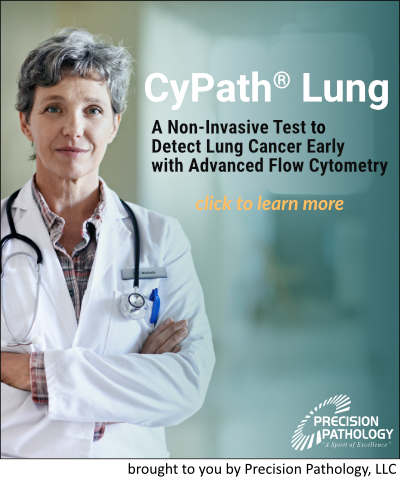MARCH 1, 2018
As published in the San Antonio Business Journal
By W. Scott Bailey
San Antonio-based bioAffinity Technologies has been approved for membership in the Early Detection Research Network, an initiative of the National Cancer Institute.
The approval gives the privately held biotech – which is advancing the commercialization of its first product, a lung cancer diagnostic test – entry to a coveted audience that will it more access to expanded collaboration and potential investors. The research network brings government, academic and industry leaders together to accelerate the discovery, development and validation of biomarkers for cancer risk and early detection.
BioAffinity President and CEO Maria Zannes said the invitation is an important step in the company’s development and commercialization of the CyPath Lung early-stage cancer detection product. Membership in the exclusive group is also expected to provide bioAffinity access to resources that should help advance its work on oncological diagnostics for prostate and bladder cancers.
“The National Cancer Institute’s Early Detection Research Network is an important forum to exchange ideas, discuss cutting-edge research, establish productive collaboration and partner with clinicians and medical centers that can advance bioAfffinity’s noninvasive cancer diagnostics,” Zannes told me.
She said inclusion in the network will give the company an opportunity to introduce its lung cancer test to a wider audience of medical industry leaders and policymakers who are focused on early cancer detection.
The real payoff could be exposure to more collaborative opportunities and funding.
“We have no doubt our involvement with the National Cancer Institute will lead to more collaboration,” Zannes said. “More exposure has always translated into more interest in investment.”
BioAffinity’s work with UT Health San Antonio and especially its director of research at the Department of Urology, Dr. Robin Leach, helped pave the way for entry into the cancer institute’s network.
“Leach is an internationally recognized expert in this field, and we’re very pleased that she’s interested in helping us advance that research and development,” Zannes said. “She led the effort that [resulted in] our membership.”

